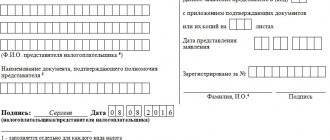Last modified: June 2020
The rules for using municipal housing are determined by the Housing Code of the Russian Federation. Most often, eviction from a municipal apartment occurs voluntarily due to the termination of the tenancy agreement and the former tenant moving to another place of residence. It happens that an employer violates the rules of residence in rented housing, places an office there, and does not pay utility bills on time. In such a situation, he may be forcibly deprived of housing. In this article we will look at the grounds and procedure for eviction.
Is it possible to evict citizens registered in it from a municipal apartment?
Municipal housing is owned by the municipality. Citizens live there on the basis of a social tenancy agreement.
The tenant has only the right to own and use residential real estate. Since the rented apartment is his permanent place of residence, he applies for registration for himself and his family members.
In accordance with Article 67 of the Housing Code of the Russian Federation, a citizen living in a municipal apartment is obliged to monitor the condition of the property, carry out routine repairs, pay rent on time and pay utility bills. If the employer does not comply with these conditions, even the registered person can be evicted.
Who can be evicted and who can't
There are three types of eviction from social housing:
- If the residential premises are recognized as unsafe. In this case, all residents of the house are evicted, and in return they are provided with living quarters, under conditions no lower than those in the previous apartment. Such eviction is in no way dependent on the behavior of the tenants.
- If the tenant owes a large amount of utility bills. The eviction occurs by court decision, but the defendant, in exchange for the previous apartment, receives a living space that is smaller in size (for example, a room in a dorm) and, often, less comfortable.
- If the tenant maliciously violated the rights of neighbors, brought the apartment into an uninhabitable state, or has another place of residence. In this case, eviction also occurs by court decision, but the violator is not provided with alternative housing.
However, not everything is as obvious as it might seem. The legislation of the Russian Federation prohibits eviction from apartments occupied on the basis of a social tenancy agreement:
- minor children, in this case, if the mother and father are not deprived of parental rights, they also cannot be evicted, since children must live with their parents;
- disabled people of the first and second groups;
- single pensioners.
On what grounds are evictions from an apartment carried out?
The grounds for eviction are established by the articles of the Housing Code of the Russian Federation. The legislator divides them into three groups.
With the provision of comfortable housing
A citizen may lose his apartment through no fault of his own. If he does not violate the terms of the social tenancy agreement, municipal authorities are obliged to provide other comfortable housing. Let us consider in more detail in which cases eviction is carried out with the provision of another place of residence.
House demolition
If the housing is in poor condition, the floor materials and walls have worn out by more than 70%, it is considered unsafe. A special commission decides to demolish the house. It is entered into a special register for relocation on a first-come, first-served basis (see relocation from emergency housing). In emergency situations, residents are evicted immediately.
If immediate eviction is not planned, then it is carried out within a year from the moment the house is declared unsafe.
Seizure of land under the house
The seizure of a land plot under a residential building is carried out exclusively for state and municipal needs. For example, for the construction of roads, the construction of gas supply facilities, defense, and the nuclear industry. The decision is made by state and municipal authorities. Residents are notified in advance of the need to move to another apartment.
Transfer to non-residential premises
A municipal apartment located on the ground floor of a house can be transferred to non-residential premises. Since the property is owned by local authorities, they have the right to dispose of it at their own discretion. If the municipality decides to rent out residential premises for an office or a store, it is removed from the non-residential stock. The tenant is offered other housing of equal comfort and size.
Recognition of an apartment as unfit for habitation
The procedure for declaring an apartment unfit for habitation is established by Decree of the Government of the Russian Federation of January 28, 2006 No. 47. The basis is harmful environmental factors that threaten the safety of life and health of citizens. These include avalanches, landslides, man-made accidents, and high background radiation. The decision to recognize housing as unsuitable is communicated to the tenant. After this, he is moved to another apartment.
Carrying out major repairs
In the case where the owner plans major repairs or reconstruction, he finds out whether the residential premises transferred to social rent will be affected. If construction work leads to a change in the area of the apartment or it is not preserved, the tenant is offered another place of residence.
Transfer of housing to a religious organization
It happens that residential premises of the municipal fund are transferred to religious organizations for a temple, monastery, or other religious needs. According to Part 8 of Article 5 of Law No. 327-FZ of November 30, 2010, this can be done after the eviction of tenants living there on the basis of a social tenancy agreement with the provision of another apartment.
When evicting with the provision of comfortable housing, one should be guided by the explanations of the Resolution of the Plenum of the Armed Forces of the Russian Federation dated July 2, 2009 No. 14 (clause 37). The new place of residence must be landscaped taking into account the conditions of a particular locality. The total area of the premises cannot be less than the previous apartment. The number of rooms should remain the same.
With the provision of other living quarters
, does not pay utility bills and rent for premises for six months , he may be evicted. This rule also applies to members of his family (Article 90 of the RF LC).
Instead of the previous housing, the defaulter is provided with another place of residence. It must be suitable for habitation. The size may be smaller, but not less than 6 sq.m. for one person. The premises are allocated from the housing stock for social use in the same locality.
When deciding on eviction on this basis, the validity of the reasons for which the debts arose is taken into account. These include long-term non-payment of wages, illness, and the presence of disabled people in the family (clause 38 of the Resolution of the Plenum of the Armed Forces of the Russian Federation dated July 2, 2009 No. 14). If the court finds mitigating circumstances, the tenant will retain his place of residence.
Without providing another place of residence
Eviction without the provision of another apartment is carried out due to the guilty actions of the tenant.
Before depriving citizens of their place of residence, the following mandatory conditions must be met:
- identify facts of systematic illegal actions;
- establish the guilt of the offender;
- warn about the need to eliminate violations.
It will be necessary to collect evidence confirming the presence of all of the above conditions simultaneously.
Let's take a closer look at what serious violations the tenant and his family members are subject to eviction for.
Damage to living space
If residents systematically and purposefully destroy structural elements of an apartment , such actions are regarded as neglect. They can result in damage to windows, floors, walls, doors, and plumbing. First, the employer receives a notice from the owner demanding that he stop the illegal behavior. If he continues to damage property, municipal authorities will use an extreme measure - eviction.
Violation of the rights and interests of neighbors
Regular neglect of the rights and interests of neighbors leads to the impossibility of living together.
The municipality has the right to deprive a tenant of an apartment if he:
- violates fire safety rules;
- does not comply with sanitary, hygienic, environmental and other requirements;
- allows noise at night (loud music, TV);
- exceeds the permissible volume due to construction work;
- engaged in animal breeding;
- commits hooligan acts.
Witness testimony may be used as evidence of the employer’s unlawful actions.
Use of the apartment for other purposes
It happens that an employer uses residential premises as non-residential premises. For example, he places an office in it, organizes a warehouse, and is engaged in industrial activities. If the owner did not give his permission for this activity and did not change the status of the property, the residents must return the apartment to its original condition and use it for its intended purpose. Otherwise, they will be evicted without providing another place of residence.
It is allowed to engage in professional activities in a municipal apartment. For example, creativity, science, legal consulting. At the same time, the employer must not disturb the neighbors and must comply with fire safety and sanitation requirements (clause 39 of the Resolution of the Plenum of the Armed Forces of the Russian Federation dated July 2, 2009 No. 14).
Deprivation of parental rights
Without providing another place of residence, citizens deprived of parental rights are evicted. You will need to obtain a court decision declaring it impossible to live together with children. The initiators of eviction are the guardianship authorities, the prosecutor or the legal representatives of the minor.
How to evict a citizen from public housing?
There are two options for eviction of a tenant: voluntarily and through the court. In the first case there are no problems. The parties draw up an agreement to terminate the social tenancy agreement. Then the citizen is discharged and moves to another apartment. If there is a disagreement between the parties, the dispute is resolved in court.
Who has the right to go to court?
Most often, the initiator of eviction is the municipality. Neighbors, prosecutors, and guardianship authorities also have the right to file a claim.
How to file a claim?
A statement of claim for eviction is drawn up according to the rules of Articles 131-132 of the Code of Civil Procedure of the Russian Federation. The document is drawn up in triplicate. One is handed over to the court with a package of papers, the second is sent to the defendant, the third is returned to the plaintiff with a registration mark.
The claim must indicate:
- name of the court;
- information about the plaintiff and defendant;
- information about the apartment;
- details of the social tenancy agreement;
- reasons for eviction;
- requirement to evict the tenant with or without the provision of housing;
- application list;
- date and signature.
You can also file a motion to call witnesses to the hearing to confirm the reasons for the eviction.
What documents should I attach?
The claim is accompanied by papers substantiating the claim.
A sample list of documents includes:
- social rental agreement;
- technical documentation;
- extract from the personal account;
- passport;
- protocols of regulatory authorities on violations;
- housing inspection reports;
- receipt of payment of state duty (300 rubles).
Additionally, you may need a divorce certificate and information about a change of residence.
Deadlines for making a decision
The minimum period for consideration of a dispute is 60 days. If the defendant does not appear at the hearing, a counterclaim is filed, motions are filed, it is extended.
After the decision is made and it enters into legal force, the tenant must vacate within 3-7 days . If he refuses to do this voluntarily, the municipality resorts to the help of bailiffs.
How to justify your demand for eviction from an apartment?
Cases involving eviction from a municipal apartment require an extensive evidence base. It is not enough to simply file a claim where it will be written that the defendant moved out of the apartment a long time ago and therefore lost his rights to it. The plaintiff must prove the permanent and voluntary nature of the departure of the former family member.
There is no single list of evidence. Those that will be given below are only the most common, and not the only possible ones.
Firstly, the plaintiff must prepare all the documents that he has in his hands: a social tenancy agreement, receipts confirming his payment of utilities, a certificate of divorce, if we are talking about the eviction of a former spouse, etc.
Secondly, you need to think about how you can confirm the absence of the defendant in the apartment.
First of all, you should take care of the witnesses. It is better if these are not only the plaintiff’s relatives, but also some common acquaintances. The latter are more credible because they are assumed to be less interested in the outcome of the case. The optimal number of witnesses is from 3 to 5.
As practice shows, people usually hesitate in the courtroom and do not understand how detailed certain circumstances should be presented and what exactly is relevant to the case. In this regard, it is imperative to talk with everyone in advance. Practice speaking in court. There is nothing illegal about this. In preparation for trials, we always conduct educational work with witnesses.
What exactly can witnesses confirm? The time and circumstances of the defendant’s departure, the nature of the relationship that existed between family members, where he lives now (at least approximately), what he does, what his marital status is, etc.
Next, you should attend to the preparation of written evidence. Among them may be:
- an act of non-residence, which is drawn up with the involvement of neighbors and certified by the district police officer,
- a certificate from the district clinic confirming the absence of visits and calls,
- a certificate from the local post office, according to which the defendant does not receive correspondence addressed to him,
— an extract from the Unified State Register of Real Estate confirming the acquisition of another property by a former family member, etc.
Thirdly, in addition to the actual absence of the defendant from the disputed living space, it must be proven that there were no obstacles to his use. This will be helped by the district police officer’s report on the absence of appeals from the departing family member and data from the file of court cases on the absence of a claim for move-in or non-obstruction to the use of the premises.
We always help our clients in collecting the necessary evidence, so if you don’t fully understand what a particular document should look like and where you can get it, don’t worry - we’ll help you. As confirmation, we suggest that you read the review of our client in the case of eviction of the ex-wife:
When making a decision, the court takes into account the entirety of the evidence presented. Each of them in itself will not be a sufficient basis for satisfying the stated requirements. The more data supporting the plaintiff’s position is presented, the easier it will be for the court to rule in his favor.
If we still talk about the strength of evidence, then in the first place we would, perhaps, put witness statements and receipts confirming that the plaintiff pays for utilities. But this is by no means a call to abandon the collection of other evidence. The main thing is to follow the principle: you need to justify everything that is included in the subject of proof (see the end of the first section).
What nuances arise during the eviction procedure?
In practice, the question often arises of how to evict temporary residents, ex-spouse, and minor children of the tenant from a municipal apartment.
Temporary tenant
It happens that the tenant, with the consent of the owner, allows tenants with temporary registration into the premises. A social tenancy agreement is not concluded with them. After the period of residence has expired, the citizen must vacate the premises. If he does not do this voluntarily, the issue is resolved in court . In this case, the tenant does not have the right to be provided with another place of residence.
Former spouse
According to the rules of the articles of the Housing Code of the Russian Federation, the tenant’s spouse is registered in the apartment with his written consent. If he has ceased to be a member of the tenant's family and continues to live with him, he retains the same rights as before the divorce.
The former spouse cannot be forcibly evicted at the request of the employer. He has the right to enter into a separate agreement with the owner of the property and independently pay his share for the use of the apartment and utilities.
Judicial practice allows depriving a former spouse of a place of residence in the following situations:
- he has not lived in an apartment for a long time;
- the citizen moved to another place;
- there are debts on bills.
If one of the grounds exists, you should apply to the court for eviction.
Minor child
Eviction of a child is possible only after the parents. At the same time, they must have another place of residence with registration. If the parents divorce, the minor retains the right to live with either of them. Even the deprivation of parental rights does not affect this.
Eviction from a municipal apartment for debts
One of the reasons for leaving municipal housing is the fact of non-payment of utilities, so eviction from a municipal apartment for debts will be a legal measure in this case.
Tenants can only be evicted if payment for utility services has not been paid within the last six months. Accordingly, if the tenant has not paid for utilities for less than six months, then eviction is impossible.
All adults who live in public housing are jointly responsible for paying for utilities, so in the event of eviction, all registered persons, in addition to minor children, will be subject to eviction.
The decision to collect debts for utility bills, as well as the further eviction of residents of a federal apartment, can be made exclusively in court.
When considering the case, the composition of the proceedings must take into account all the reasons that caused the circumstances of non-payment of utilities. If the court considers these reasons unjustified, the decision will be made in favor of further eviction.








